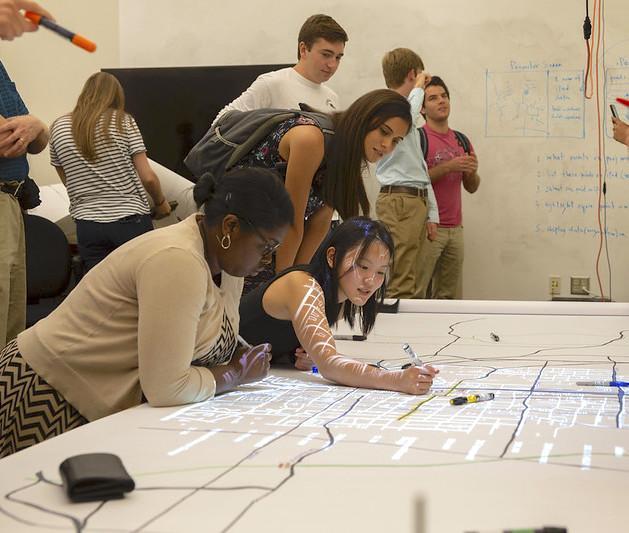New Partnership with Georgia State Looks for Computing Solutions to Social Challenges
Oct 07, 2019 — Atlanta, GA

A new six-figure grant is connecting Georgia Tech computer scientists with Georgia State University social scientists in a unique collaboration to address historic social inequities.
The $180,000 grant from the Public Interest Technology Universities Network (PITUN) will fund a two-semester fellowship program for 16 faculty members. PITUN is supported by the Ford Foundation, New America, and the Hewlett Foundation. The grant is the first of its kind awarded by PITUN.
These 16 will split into eight pairs–each with a Georgia Tech computer scientist and a Georgia State social scientist. Each pair will then work to develop interdisciplinary projects addressing historic and continuing inequity challenges in the southeastern United States.
“This collaboration is a unique opportunity to showcase the power of computer science to drive meaningful social progress, as well as the impact that interdisciplinary research can have on real-world issues,” said Ellen Zegura, Georgia Tech computer science professor and co-lead on the fellowship program.
[RELATED: Professor Receives Mozilla Grant to Teach Social Responsibility in Computing]
Susan Snyder, Georgia State School of Social Work associate professor, and Scott Jacques, Georgia State Criminal Justice and Criminology Department associate professor, are co-leads with Zegura on the project.
The grant is one of 27 awarded today as part of PITUN’s inaugural “Network Challenge,” which supports the development of new public interest technology initiatives, especially those that bring together multiple partner schools.
At the end of the two-semester program, the eight teams will present their collaborative projects during a public showcase. The projects will also be documented on a program website, and the program’s structure and materials will be made publicly available for use at other institutions.
According to Zegura, who is the Stephen Fleming Chair in Telecommunications at the Georgia Tech School of Computer Science, the progress won’t end when this initial fellowship does.
“Of course, we can’t solve historic issues of inequity in two semesters,” Zegura said. “But we can highight current public interest challenges in the region, identify potential solutions, and create resources for those at colleges and universities across the Southeast that are interested in picking up the torch on these important issues.”
PITUN, which was convened earlier this year, is a partnership of 21 colleges and universities dedicated to building the nascent field of public interest technology, as well as growing a new generation of civic-minded technologists and digitally-fluent policy leaders.
Albert Snedeker, Communications Manager




